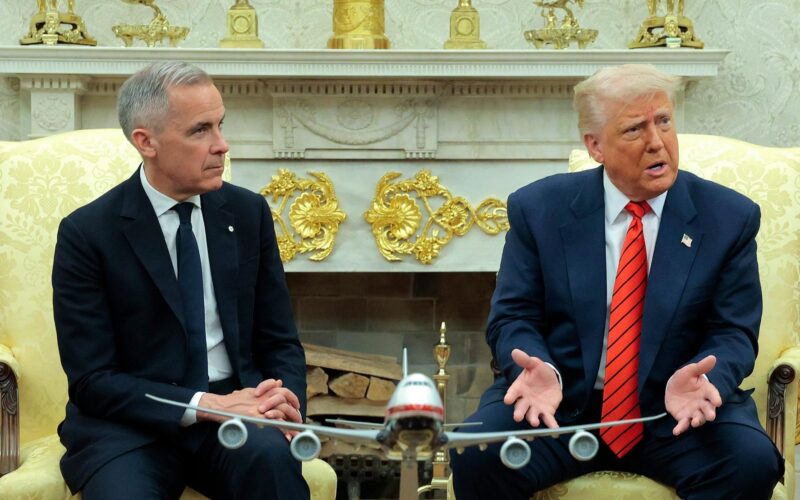Washington/Ottawa, July 11: President Donald Trump announced plans to raise tariffs on Canadian imports to 35%, further straining relations between two of North America’s closest trading partners and injecting new uncertainty into cross-border commerce.
In a letter sent Thursday to Canadian Prime Minister Mark Carney, Trump said the increased tariffs, up from the 25% rate announced in February, will take effect from August 1. The move comes amid US accusations that Canada has not done enough to curb fentanyl trafficking, despite comparatively low levels of the drug’s smuggling from Canadian territory.
“I must mention that the flow of Fentanyl is hardly the only challenge we have with Canada, which has many Tariff, and Non-Tariff, Policies and Trade Barriers,” Trump wrote in his letter.
The tariff hike follows weeks of rising tensions as Trump has issued a flurry of tariff threats against multiple countries. However, Canada America’s second-largest trading partner after Mexico has emerged as a particular target. Ottawa has responded in recent months with retaliatory tariffs and pointed rhetoric, resisting Trump’s provocative suggestions that Canada might be treated as a potential “51st state.”
Prime Minister Carney, who assumed office in April on a platform promising to stand firm against US pressure, has pursued closer economic ties with the European Union and the United Kingdom. Hours before Trump’s letter, Carney posted a photo on social media alongside British Prime Minister Keir Starmer, declaring: “In the face of global trade challenges, the world is turning to reliable economic partners like Canada.”
The implication of Carney’s message was that the US has become an unpredictable trade partner under Trump, whose administration has frequently announced new tariffs only to reverse course later.
Trump’s tariff actions have become increasingly personal in tone, including a separate letter Wednesday imposing a 50% tariff on Brazil in connection with the trial of former President Jair Bolsonaro over his alleged attempts to overturn his 2022 election defeat. Trump himself has faced criminal charges over efforts to reverse his own 2020 election loss.
Trump previously suspended trade talks with Canada in June over Ottawa’s plans to implement a digital services tax targeting large US technology firms. Talks resumed after Carney withdrew the proposed tax, but tensions have continued to simmer.
It remains unclear how Trump’s proposed tariff hike would be reconciled with the 2020 United States-Mexico-Canada Agreement (USMCA), which governs trade rules across North America and includes provisions protecting certain goods from tariffs. A review of the pact is scheduled for 2026.
The prospect of higher tariffs raises fresh concerns for industries on both sides of the border, potentially affecting supply chains and pricing in sectors ranging from automotive manufacturing to agriculture.
Trump Hikes Canada Tariffs to 35%, Escalating Tensions in US-Canada Trade Ties

